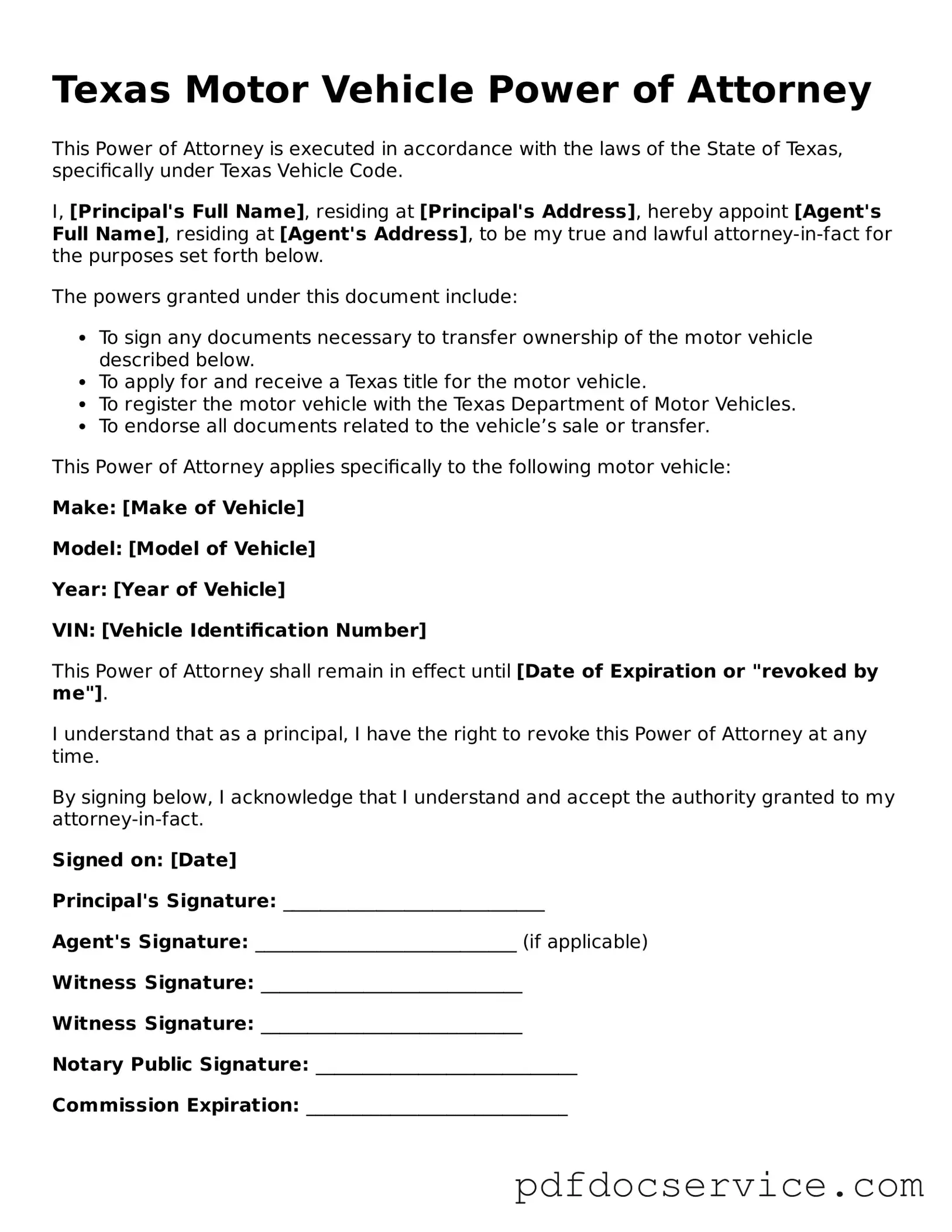Printable Motor Vehicle Power of Attorney Template for Texas
The Texas Motor Vehicle Power of Attorney form is a legal document that allows an individual to authorize another person to act on their behalf in matters related to motor vehicle transactions. This form is particularly useful when the vehicle owner cannot be present to complete necessary paperwork, such as transferring title or registering a vehicle. By using this form, individuals ensure that their interests are represented effectively and efficiently.
Open Motor Vehicle Power of Attorney Editor

Printable Motor Vehicle Power of Attorney Template for Texas
Open Motor Vehicle Power of Attorney Editor

Open Motor Vehicle Power of Attorney Editor
or
Get Motor Vehicle Power of Attorney PDF
Finish the form now and be done
Finish Motor Vehicle Power of Attorney online using simple edit, save, and download steps.